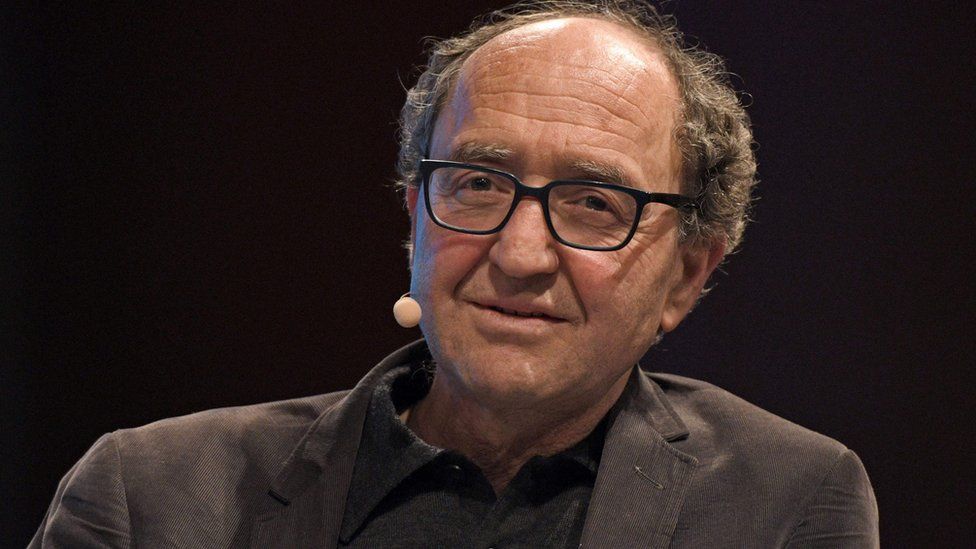Erdogan critic Dogan Akhanli arrested in Spain
- Published

A German-Turkish writer who is a known critic of President Recep Tayyip Erdogan has been arrested in Spain.
Dogan Akhanli, who has written extensively on human rights in Turkey, was detained at the request of Turkish authorities in the city of Granada.
German Green MP Volker Beck said the move was politically motivated and that he had requested that Mr Akhanli should not be extradited to Turkey.
It is unclear on what grounds the arrest warrant was issued.
The move, Mr Beck said, showed that President Erdogan was prepared to "extend his power beyond his country's borders" to "intimidate and pursue [his critics] around the world".
Since a failed coup in July last year, tens of thousands of people have been arrested in Turkey - including officials, academics and journalists. Opposition media outlets have been closed down.
Mr Akhanli, 60, has written about the killing in 2007 of Turkish-Armenian journalist Hrant Dink and the 1915 killing of Armenians by Ottoman Turks, which was labelled as genocide by the German parliament last year.
His lawyer, Ilias Uyar, told Der Spiegel magazine that it was "unbelievable that Turkey is now simply chasing critical minds abroad".
In February Deniz Yucel, a German-Turkish journalist who works for Germany's Die Welt newspaper, was detained in Turkey over allegations of producing terrorist propaganda. He remains in police custody.
German-Turkish relations dipped to a new low on Friday when Germany accused Mr Erdogan of interference after he urged Turkish voters in Germany not to vote for the country's main parties.
Relations soured in March after Mr Erdogan accused German officials of acting like Nazis following Germany's cancellation of rallies among ethnic Turks ahead of a referendum on greater powers for the Turkish president.
Despite these tensions, the two countries remain major trade partners and allies in Nato.
- Published18 August 2017
- Published7 August 2017
- Published15 July 2017